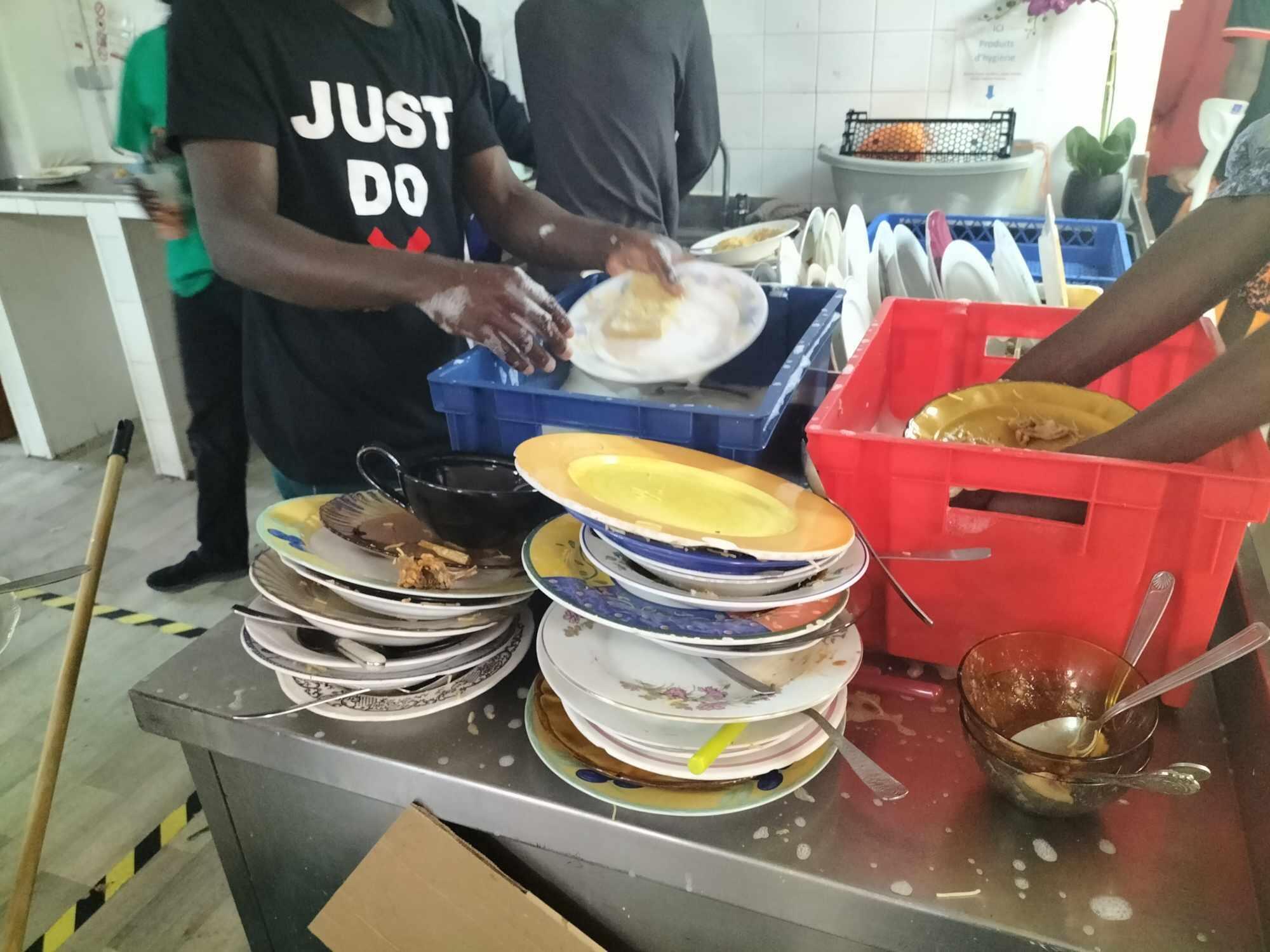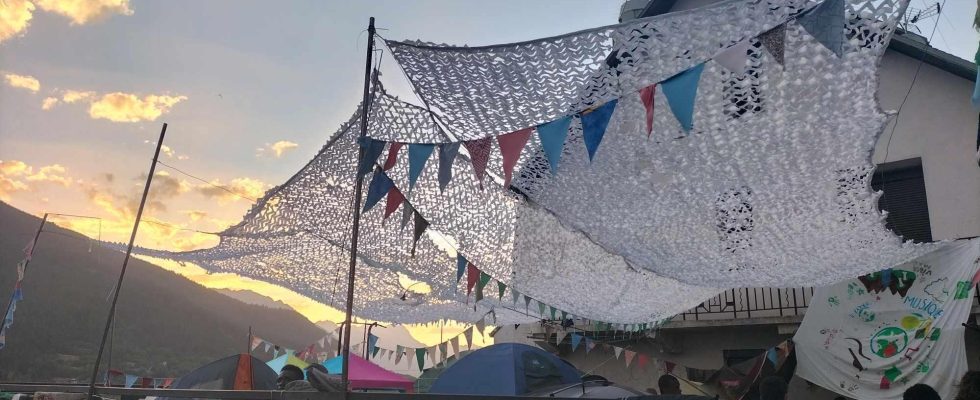Since May, the Terrasses solidaires, a third place in Briançon, in the Hautes-Alpes, have been overwhelmed by the need for emergency accommodation, as the exiles cross the Franco-Italian border. The associations and their volunteers have been calling for help from the authorities for weeks, but no alternative is offered at this time.
5 mins
The former Briançon sanatorium has never seen so many people. Since 2021, it has welcomed men, women and children on the road to exile. The refuge and its 60 accommodation places is the first on this side of the Franco-Italian border.
But since May 2023, arrivals, often in small groups, night and day, have multiplied. ” The passage has always existed, says Luc Marchello of the association Refuges solidairesbut it intensified in 2016, and even more so since spring 2023. »
Why are there suddenly more of them? The associations do not have the answer, but this influx corresponds at the same time to the massive arrivals of men and women on the Italian island of Lampedusaafter a trying crossing of the Mediterranean that many here have experienced.
A young Ivorian anonymously tells us about the difficult road through the mountain to reach the refuge. It was his second attempt. The first time, the border police intercepted him. “ We left around 1am, in the night, it was dark. One of my friends turned around, he was too scared, but we found the courage to continue. The Mediterranean next door was even worse. »
Eyes riveted on the GPS of his mobile, he managed to guide his friends out of the thick forest that lines the Montgenèvre pass, taking care not to make any noise and to take detours to avoid any encounter with the forces. of the order. It is 6am when they finally arrive at the Solidarity Terraces.
Emergency accommodation has become a priority
On site, the association Refuges solidaires, which has a permanent reception, offers him a bed, sheets, soap and toothpaste. The third place normally has 60 beds, spread over several rooms. But that weekend, in the middle of August, 200 people had to be accommodated at nightfall. Camp beds and mattresses on the floor are installed in the refectory, in the meeting rooms and the corridors. Tents have also been erected on the outdoor terrace of the sanatorium.
This place is managed by four associations: Refuges solidaires, which takes care of emergency accommodation, Médecins du monde, which provides medical assistance, Tous Migrants, which manages advocacy, and Eko, which works to empower exiles and transmission of skills to allow integration.

But this summer, humanitarians find themselves overwhelmed by the number of people to be cared for urgently. Béchira, an employee of Refuges solidaires, no longer manages to devote the time she would like to each young person who passes through her office. Normally, she welcomes them individually after their arrival to discuss with them, find out their destination if they have one, help them book a train ticket to join their family, and explain to them the steps to take, for example , have their minority recognized and have access to the care provided for by law for unaccompanied minors.
But since May, there are too many of them and the young woman feels overwhelmed by the situation. ” After the trauma they have experienced, it is clear that some need a shrink, some need to rest, to stay here two weeks, three weeks… But if we want to be able to welcome the others, we have the impression that we have to get them out as quickly as possible and we don’t have time to discuss it with them. It is very frustrating. »
A dangerous frontier
Crossings are via the Col de Montgenèvre, a ski resort popular with tourists in winter. During this season, the teams of Doctors of the World go directly to the mountains to help those who may encounter the difficulties linked to the difficult climatic conditions. In summer, the risks are also present, because the presence of the police force the exiles to make their way higher and to take rough roads. For Isabelle, who runs the medical office at Terrasses solidaires, the task of humanitarian workers is made more complicated by the police. “ Several of us have been harassed, we undergo regular checks, we receive false fines “, she explains.
The association Tous migrants, too, points the finger at the action of the border police (PAF). When an exile is intercepted, he is brought to the station and given, according to the law, the right to register an asylum application there. But this protocol would only rarely be applied. Instead, the arrested person is placed temporarily in a sheltering zone before being escorted by the Italian police to the other side of the mountain.
It is at the time of this control by the PAF that the unaccompanied minors can request the protection linked to their status. According to the testimonies collected by the association Tous Migrants, this protocol is rather respected.
Since 2016, a dozen young men, aged 15 to 33, have lost their lives at this border. The last of them was found on the morning of August 7 by a hiker. Like so many others, Moussa, a young Guinean born in 2004, wanted to come to France.
Read alsoMigrants: Doctors Without Borders warns of the situation at the Franco-Italian border
